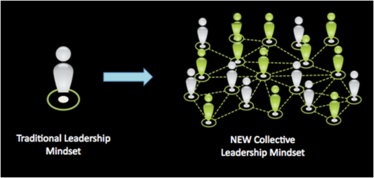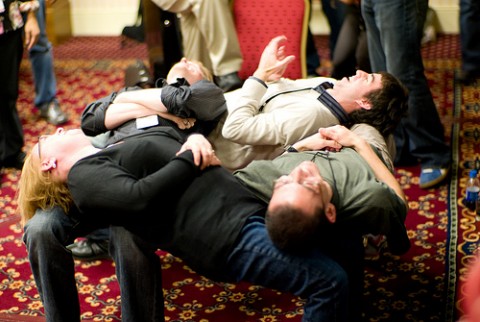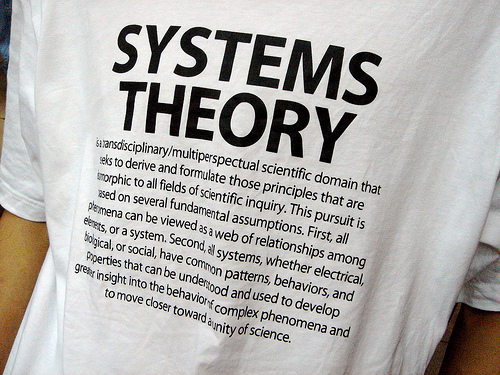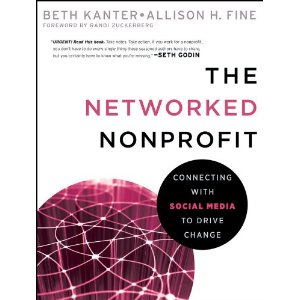Tag Archive: Networks
October 1, 2010
Malcolm Gladwell has certainly whipped up something of a firestorm, at least among social media and network enthusiasts. In a sense, his timing couldn’t be better as this very morning IISC staff gathers with some very bright and committed network building thinkers and consultants to take our ongoing conversation about networks for social change the next step, with some practical application in our collective sights. I expect, and hope, that some of the energetic on-line conversation Gladwell has inspired in our community will continue during this in-person gathering.
In case you missed it, the author of The Tipping Point published a piece in the recent New Yorker entitled, “Small Change: Why the Revolution Will Not Be Tweeted.” Read More
October 1, 2010
Malcolm Gladwell has certainly whipped up something of a firestorm, at least among social media and network enthusiasts. In a sense, his timing couldn’t be better as this very morning IISC staff gathers with some very bright and committed network building thinkers and consultants to take our ongoing conversation about networks for social change the next step, with some practical application in our collective sights. I expect, and hope, that some of the energetic on-line conversation Gladwell has inspired in our community will continue during this in-person gathering.
In case you missed it, the author of The Tipping Point published a piece in the recent New Yorker entitled, “Small Change: Why the Revolution Will Not Be Tweeted.” Read More
August 2, 2010

This is a very exciting time for those of us who are working to apply the logic of networks to the work of social change. Our ideas are gaining traction as more and more experiments start to point towards success. Life online, the viral nature of meaningful stories and our human desire for deeper connection all serve to confirm our intuitive understanding of life in a network. However, as we step into this paradigm shift, as we start to approve of these ideas, we still have to contend with the constraints of the organizational and funding structures within which we currently work. Read More
July 21, 2010

photo by partie traumatic
“Power without love is reckless and abusive, and love without power is sentimental and anemic. Power at its best is love implementing the demands of justice, and justice at its best is power correcting everything that stands against love.” Dr. Martin Luther King, Jr.
This often quoted comment by Dr. King forms the foundation of Adam Kahane’s new book, Love and Power: A theory and practice of social change. Melinda Weekes and I attended a recent book talk by Adam, attracted to the topic because, at IISC we’ve been thinking through and practicing the connections among power, love, networks and collaboration for years now. Much of what Adam shared resonates with our thinking. The book builds on the thinking of theologian Paul Tillich. His definitions are worth taking a closer look:
Read More
June 28, 2010

|Photo by joi|http://www.flickr.com/photos/joi/2941559903|
Our colleagues at Interaction Associates have done some wonderful work on the importance of trust in the workplace and what leaders can do to cultivate this, especially under uncertain circumstances the likes of which seem to be omnipresent these days. More recently, former IBMer Irving Wladawsky-Berger has taken this conversation to a new level in a post that looks at trust as “the most important operational resource in our society.” In our increasingly complex, interconnected, and distributed world, he says, one’s reputation as an individual or institution is foundational to what we might call success. This observation contributes to his sense that we are in the midst of a values-based generational transition as potentially profound as the sixties.
Without rehashing the entire post here (I encourage you to read it in its entirety by going to this link), I want to point out some of the more interesting parts and ask what folk engaged in the social sectors and social change work think Read More
June 23, 2010

|Photo by Lee Adcock|http://www.flickr.com/photos/leeadc/2821894989/sizes/m/|
A few of us at IISC have been talking recently about network governance – trying to gather what we’ve learned about what kinds of governance structures have worked with networks. It’s sparked a lot of questions – and I had the great fortune of meeting with the amazing Jessica Lipnack recently to ask her advice about what she would suggest. For those who don’t know Jessica, she and her husband Jeff Stamps have been working with and studying networks for over 30 years and have literally written the book (actually the BOOKS) on networks and working with virtual teams over these many years.
Read More
June 14, 2010

|theory.isthereason.com|http://theory.isthereason.com/?p=1764|
One of our consultants just wrote the following e-mail to our team here at IISC. I thought it would be a good idea to put the question out to our readers – any thoughts?
Hello Colleagues,
I am wondering if you might have ideas about two things:
1. How to introduce systems thinking to a group – simply…
2. What questions you might ask when trying to identify leverage points in a planning process?
Context: The group has gathered a lot of anecdotal information, the intention is to gather additional information on best practices and research, however, we are not there yet. So how to begin to identify levers when we don’t have the benefit of having all data?
Thanks for any thoughts you might have on this!
June 14, 2010

|theory.isthereason.com|http://theory.isthereason.com/?p=1764|
One of our consultants just wrote the following e-mail to our team here at IISC. I thought it would be a good idea to put the question out to our readers – any thoughts?
Hello Colleagues,
I am wondering if you might have ideas about two things:
1. How to introduce systems thinking to a group – simply…
2. What questions you might ask when trying to identify leverage points in a planning process?
Context: The group has gathered a lot of anecdotal information, the intention is to gather additional information on best practices and research, however, we are not there yet. So how to begin to identify levers when we don’t have the benefit of having all data?
Thanks for any thoughts you might have on this!
June 7, 2010

I was glad to follow a few of my Tweeter peers as they commented on the recent “Personal Democracy Forum” (#PDF10). Allison Fine and Beth Kanter offered a conversational keynote based on their new book “The Networked Nonprofit.” So much of what they say is directly connected to the work that we do here at the Interaction Institute for Social Change, that I think it’s best to let Beth speak for herself. Read More
May 13, 2010

|Photo by Flowery *L*u*z*a*|http://www.flickr.com/photos/luchilu/747345256|
For the past few weeks, in a series of Thursday posts, we’ve addressed what it takes to tap the full potential of collaboration to shift to more environmentally sustainable ways of living and working. We’ve explored the importance of bringing diverse systemic perspectives together and developing shared identities and values as a way of achieving greater ecological intelligence and commitment. And as a friend of mine says, you can bring great groups together with the best of intentions and still end up with nothing or a mess. So what else can we put into place to help ensure we reach the sustainable ends we seek?
Read More
May 11, 2010

David Brooks is making me think again. This time he is pointing to the limits of policy. Yes, he’s throwing stones at what is a sacred cow for change makers of all stripes – and I’m glad he is doing it. As happens too often with Brooks, he gets dangerously close to cultural determinism, but it is by walking that line that he can manage to highlight some very important empirical patterns. Read More
April 16, 2010

Just back from the Grantmakers for Effective Organizations (GEO) Conference, the theme of which was “Unleashing Philanthropy’s Potential.” Marianne and I were in attendance in part to facilitate a session on “Leveraging Philanthropy’s Best Intentions for Collaborative Change.” We came away inspired, impressed, and heartened by the overall conference conversation, which included explorations of whether there is a need for greater empathy in philanthropy, how funders can support and evaluate the impact of networks, strategies for foundations to embrace innovation in their grantmaking practice, and what we might all learn from the Obama Administration’s emphasis on supporting “what works” (via such mechanisms as the Social Innovation Fund).
Read More










